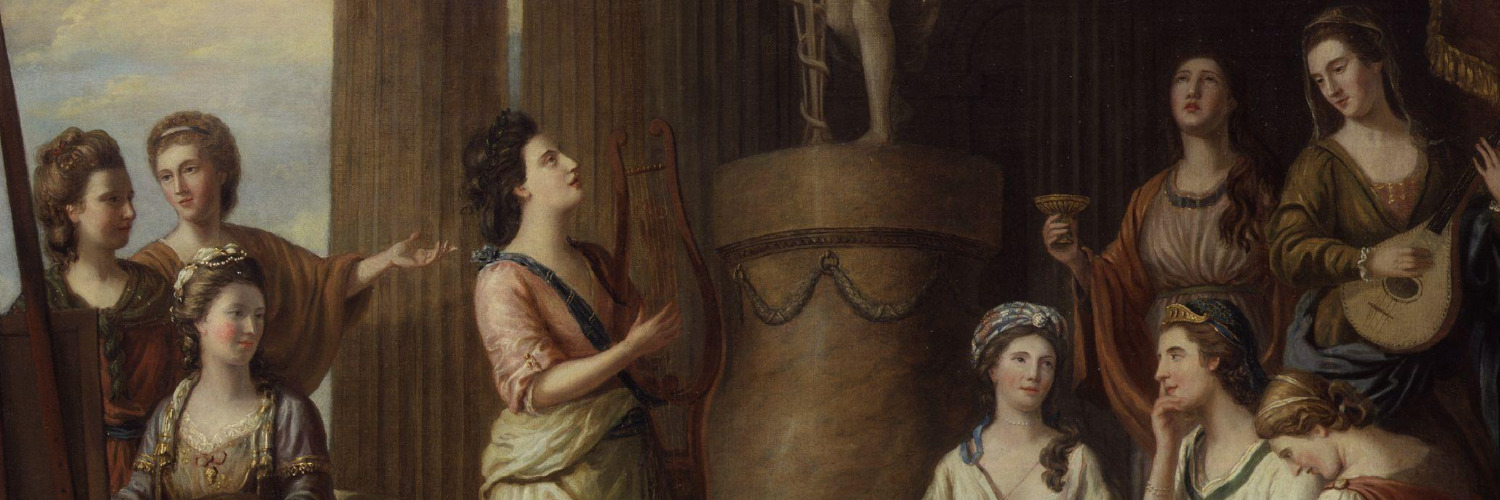- Physical form: One sheet folded into 2 leaves (18.3 x 23.2 cm)
- Cover: Miss Rickards / Crescent / Birmingham
- PM: None
- WM: JOHN FELLOWS / 1806
- SM: Misc MS 4365
Thanks for your kind letter which I should have answered sooner, but really the very hot weather we have had gave me such a feeling of debility that everything like exertion was a burden to me. With hot weather we are not likely to be troubled again this season, but I feel I am fast approaching the season when, as Solomon tells us, every thing, even the grasshopper is a burden. I hope however I shall feel it last in those exertions necessary to maintain the friendly intercourses of life which give life itself its value— I recieved Blair
with great pleasure, but beg you will not make any apology about it, I know by experience it is a long time before one is familiarly acquainted with all the contents & their various residences of one’s house & library—I trust you are by this time settled comfortably, have renewed all your old acquaintance in Birmingham, made new ones & feel yourselves at home in the bosom of your connections— I do not know how it is with you, but I understand this week is to be distinguished here by a number of weddings—I do not
know
[fol 1v] know whether you have ever seen Mr Tobin who brought out his brother’s plays the Curfew & the Honey Moon
—He is almost blind, & otherwise of an unattractive appearance, nor very young, & to the surprize of all his & her acquaintance is to be married to morrow to a very handsome agreeable young lady who has fought thro a strong opposition from all her friends to make him happy—Mr S. Palmer of Clapton
is also to be married to morrow, it is doubtful they say whether the lady has fallen in love with him or his new house—& last, not least, dear Susan ^Taylor^ will in this week (as I believe) make Dr Reeve happy.
Mrs & Miss Enfield
are also expected at Newington this week & if Robert Kinder,
inspired by these examples should chuse to make short work of it, they might make another couple in the dance without his going down to Norwich which however is the plan— Have I given you enough of weddings? We are very happy in the company of Miss Finch,
that is when we have it, for she has so many friends that she is seldom here many days together, she is delighted & so are we, with the prospect of her brother William’s no longer wasting years so precious at that age in inaction at home.
He is with Mr Parkes in his laboratory. I like him much. He appears to be gentle modest studious, & has a simplicity one seldom meets with in a youth of seventeen. It is delightful
to
[fol 2r] to see the Brother & Sister together, the joy of Anne dancing in her eyes— Miss Kinder’s are returned from the lakes,
the journey seems to have done Sarah much good. I spent some days at Hampstead lately with the Carrs, who have got a charming house & situation, my visit was very pleasant, but I could not pass a certain house in Church Street without a sigh—I was at West End fair, a pleasant & gay sight as well as a touching one, but I fear it declines, as they took much less than the former years, & as Lady Alvanley was afronted & mad[e] a secession from the rest. I send you a few lines (I can scarce call them verse) which the occasion suggested to me
— Except this visit we have been & I believe shall be, at home all the Summer, & therefore I cannot return the agreeable entertainment you have given us by your account of your journey, which I am glad was so pleasant—We have only travelled in books. We have just accompanied a Spaniard, Don Manuel &c in his tour thro England & have been much amused with his opinions & remarks on what he sees. He treats us all very freely, but Birmingham he particularly abuses, for which reason I do not know whether I must recommend it to you. The Spaniard’s cloak however by no means hides the Englishman’s skirts, & the real author is strongly suspected to be Southey.
It is light & amusing reading, tho many of the descriptions are too minute & many of the opinions given in that dashing way, which that set of authors are so fond of——All here unite in
[fol 2v] in most affectionate remembrances to you & Mrs Rickards Mr Barbauld desires most cordially his affectionate & Miss Finch her best compliments Adieu
Your’s ever

